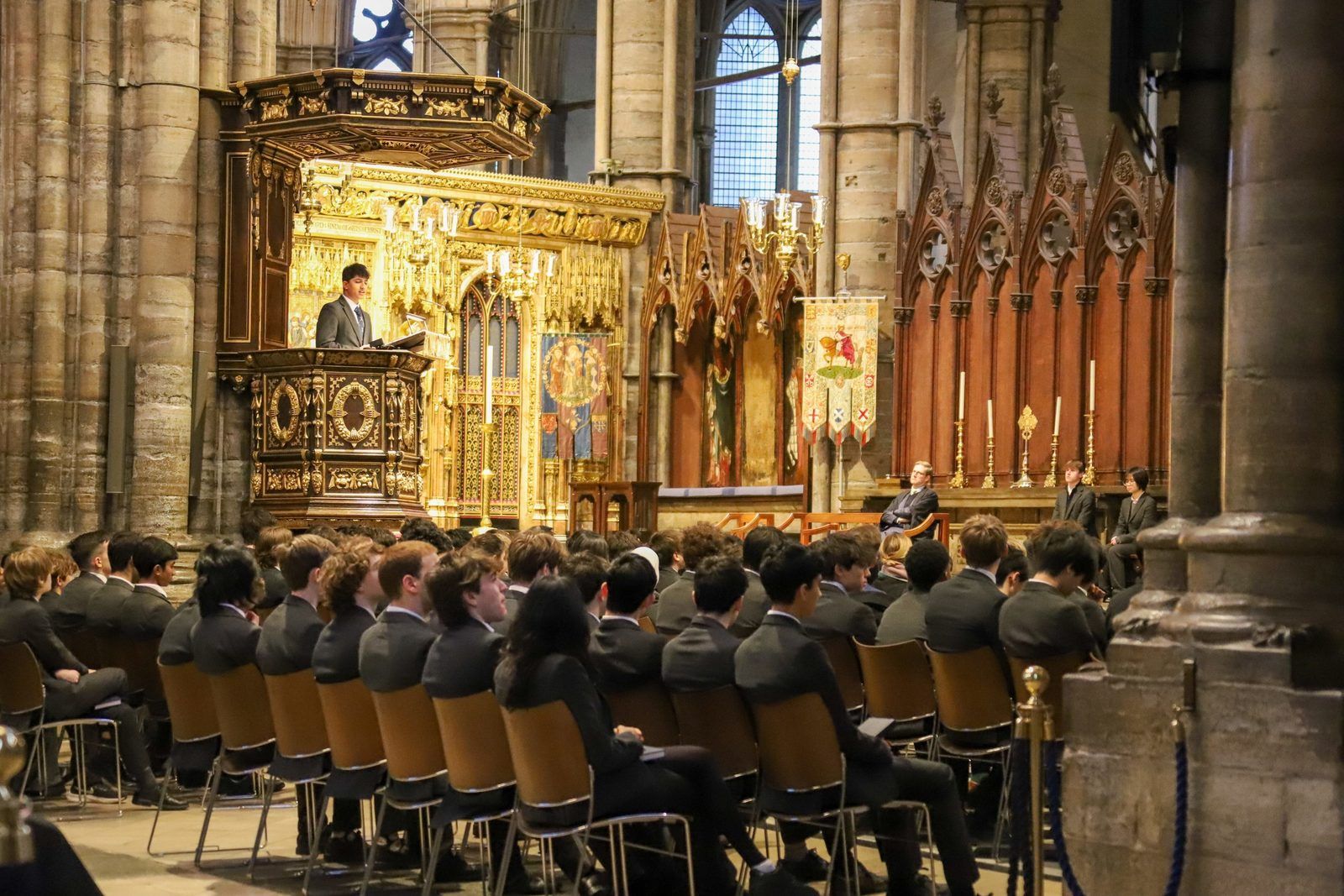Having conquered Kilimanjaro, Jijjith (Upper Shell, WW) took to the Abbey pulpit to recount his story and the lessons he learned.
In October 2023, Jijjith and his father flew to Tanzania to summit Africa’s largest mountain. Climbing for ten to 12 hours a day for seven days, they reached the 19,340ft summit, and in the process raised money for UNICEF.
At Abbey in January, Jijjith reflected on the experience

The courage to continue…
Abbey, Friday 12 January 2024
In my mind, I was ready, fired up — nothing could bring me down. I had been preparing for months; I ran five kilometres three times a week, I was in the gym every other day, and did 25-kilometre treks every Sunday. Then I saw the mountain. It humbled me.
Kilimanjaro was far from easy. It wasn’t what I thought it would be, and it seemed like nothing could have prepared me for the coming week, which took me, my dad and the other members of our group five days to ascend and two days to descend.
Despite having brought the British weather with me, the first three days were really enjoyable. The collective anticipation kept all of us motivated for the next day’s trekking. When things got hard, we just sang songs, shared jokes, and lifted one another’s spirits. But then we entered the fourth day. On the fourth day there were no songs, no jokes, just grunts of pain as we scaled a 1,000-metre ridge with steep and narrow paths called the Barranco Wall. Apparently, most people quit when they reach this point, decreasing the summit rate to only 48%. It was tough, but everyone in the group had something different motivating them and pushing them to face the challenge.
It was tough (awful, in fact), but this was a profound day for me. It was the day I realised that I could positively affect those around me. Whether pointing out a hold or offering words of encouragement, being able to help members of the group inspired me to keep going. That day, I learned that whilst I must take care of myself, belonging to a team ultimately relied on my ability to act selflessly — what I didn’t know then was the danger this would put me in the next day.
The fifth day is known as the ‘summit push’, the day mountaineers both dread and anticipate. Oxygen levels drop below 8% (it’s currently about 20% here in the Abbey). And forget the drizzling rain; the hail stings your face, and -20C temperatures last over 17 hours of painful endurance. I know, fun. But at this point, my sights were set on the summit. So, with only four hours of sleep, my dad and I set off to reach the summit. I wanted to stay with him and the group, but after a few hours, the guide noticed I was getting colder and colder because the pace was slow, and if I didn’t speed up, my chance of catching hypothermia would continue to increase. So, the decision was made to let me go ahead. Alone. I was nervous and cold but somehow excited. With a simple nod of the head, I was off and spent the next eight hours pacing one foot in front of the other in a solo battle only I could fight and one I will always remember. The struggle was worth it, and by 4.00am, the clouds started to lift as the sunrise lit the sky with an orange glow. At the summit, I celebrated both the physical and mental achievement of reaching the top. The trek was long, but the view from the peak was so beautiful.
Thinking about all this at the start of a new year (and a new term), many of us may be facing an uphill challenge. Whether it’s exams, friendships, or planning our future beyond this place. Whatever your summit, I hope you find the same encouragement that I found in the words of a Swahili saying that kept me going throughout my challenge:
Success is not final; failure is not fatal:
it is the courage to continue that counts.
May you have the courage you need to climb your mountain.
Related News Stories
